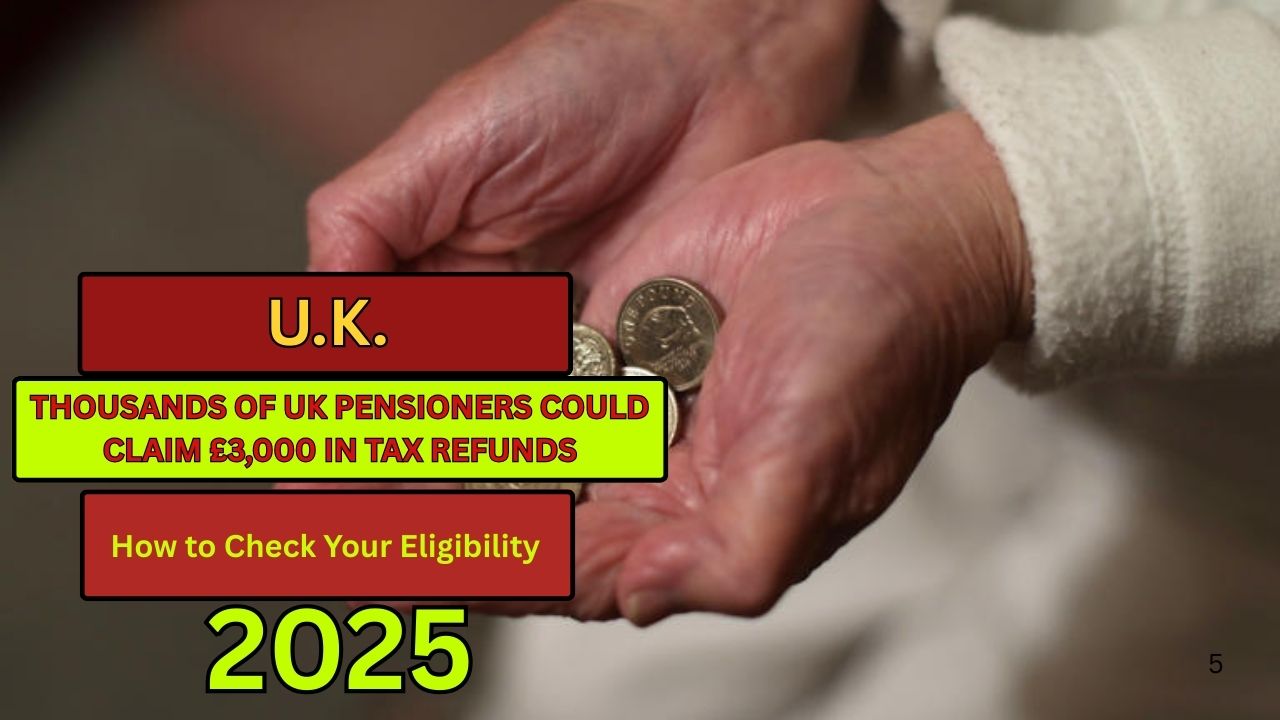Thousands of pensioners across the UK could be sitting on unexpected tax refunds without even knowing it. HM Revenue and Customs (HMRC) is encouraging pensioners who recently accessed their pension funds to check if they are eligible to reclaim overpaid taxes.
According to HMRC, over 15,000 pensioners reclaimed a total of £44 million in tax refunds during the first quarter of 2025 alone, with the average payout amounting to nearly £3,000 per person.
Why Pension Tax Overpayments Happen
The main cause behind these unexpected refunds is the application of emergency tax codes when pensioners make lump-sum withdrawals from their pension pots. Under HMRC procedures, a one-off withdrawal is often treated as if it were a recurring monthly income, leading to an initially higher tax deduction.
Although tax codes usually adjust later, pensioners can face significant short-term overpayments. Without actively claiming, many may not see this money until the end of the tax year — or, worse, not at all unless they apply.
Who Should Check Their Eligibility?
Pensioners aged 55 and older who have:
- Taken a taxable lump sum for the first time from their pension savings.
- Withdrawn their entire pension pot in one go.
- Made irregular or large pension withdrawals.
are strongly advised to check if they have been overtaxed (MoneySavingExpert).
These groups are most vulnerable to emergency tax charges, and missing out on a refund could mean losing thousands of pounds that are rightfully theirs.

How to Claim a Refund from HMRC
If you suspect you have overpaid tax after a pension withdrawal, you can reclaim it by submitting one of the following HMRC forms:
- Form P55: If you have taken part of your pension and do not plan to take regular payments.
- Form P50Z: If you have emptied your pension pot and are not working or receiving benefits.
- Form P53Z: If you have emptied your pension pot and are still working or receiving benefits.
Claims can be submitted online through the GOV.UK claim a tax refund page or by posting a completed form to HMRC.
Typically, refunds are processed within 30 days after submission, making it a relatively quick way to recover significant sums.
What Happens If You Don’t Claim?
If pensioners do not actively claim a refund, HMRC will still automatically adjust their tax situation — but only after the end of the tax year. This could mean waiting several extra months for a refund.
For those who may not want to wait, submitting a claim now ensures a faster return of their money.
Additional Considerations
It’s also important for higher-rate taxpayers to check if they’re claiming their full pension contribution tax relief. Although basic-rate tax relief is automatically applied, higher-rate taxpayers often need to claim the extra relief manually via their self-assessment tax returns.
Consulting a financial advisor or seeking help from organizations like Citizen’s Advice may provide further assistance.
Conclusion
Thousands of pensioners could be missing out on money simply because they are unaware of the tax refund process. Given the scale of overpayments, pensioners are strongly encouraged to check their withdrawals and take action if necessary.
Checking eligibility and making a claim could return thousands of pounds into the hands of those who need it most.
This article has been carefully fact-checked by our editorial team to ensure accuracy and eliminate any misleading information. We are committed to maintaining the highest standards of integrity in our content.

Outside of work, he enjoys playing chess, following cricket, and writing short stories. His commitment to integrity and in-depth analysis strengthens OTE News’ mission of providing trustworthy journalism.




